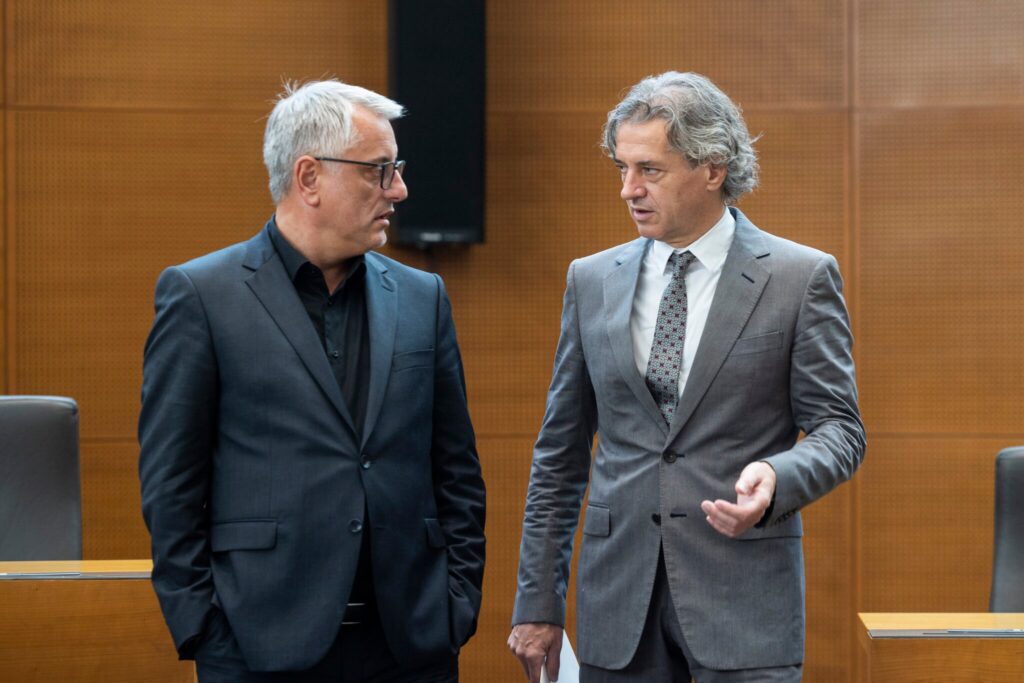At the end of February, the management and owners of the A&E Europe company, which is part of the US-based Elevate Textiles group, announced the gradual closure of their plant in Slovenia, and redundancies have also been announced. The reason is that it is no longer viable for them to continue production in Slovenia due to the difficult market situation and other factors. Although no one dares to admit it out loud, it is quite clear that companies are also leaving because they can no longer afford the production costs here and other taxes that are being introduced by the Golob government, such as the increase in the minimum wage, which represents a huge additional burden for companies, and so does the capital gains tax. Companies had previously already announced that they would have to make redundancies because they would not be able to cope with these costs. And now all of their announcements are coming true.
One hundred employees of the company A&E Europe in Maribor went on a two-hour warning strike against the announced plant closures and redundancies, demanding that production be maintained and that the workers’ council reimburse the money spent irrationally, and if will not be realised, they demand to be paid a severance package of €100,000 each. They expect their demands to be met by the 1st of May. The workers are represented by the Confederation of Trade Unions of Slovenia and are therefore demanding that production in Maribor be maintained and that key customers, most of whom have recently been taken to a German company within the group, be reinstated.
As the workers learned at a previous meeting with the company’s management, 56 workers are expected to lose their jobs in the first phase at the beginning of May, and all the others at the beginning of July. The President of the Confederation of Trade Unions of Slovenia, Gvido Novak, believes that the behaviour of the company’s owners is controversial. In 2016, they also bought the German company Gütermann, which has the same production as the Maribor company, and the deal could only be concluded on the condition that the German factory took over all of the company’s operations in Europe. Since then, he says, they have been deliberately depleting the Maribor company, taking away all their customers, and finally, they will close down the factory and lay off the employees.
Despite all these demands, it is also clear that companies are leaving Slovenia because of the unfavourable economic climate. After the very first moves of Robert Golob, Joc Pečečnik, a successful Slovenian entrepreneur, believes that the new government does not understand the position of the entrepreneur and does not understand that it is entrepreneurs who are filling up the state coffers with the money that the government is wasting. “The entrepreneur is not on their radar at all, other than in the role of a cash cow,” he was critical of the government and also gave an example of their attitude towards entrepreneurship. “Unfortunately, the new political situation has taken away my hope for a better future, and I no longer have the strength to criticise it because I have already criticised too many times before what I did not think was right,” he also said.
The policy of the Golob government is clearly following the dictates of the extreme Left party (Levica): higher taxes (on salaries, apartments, cars and houses), worsening of the business environment, and lowering the competitiveness of the economy. This means a fall in the standard of living for all, which indicates that challenging times are ahead for Slovenia. In Slovenia, work is overburdened with taxes, which means that we are less competitive, and, above all, many capable and educated people are moving abroad, because they are paid much less for their work in Slovenia than they would be paid abroad, while working under the same conditions. The previous, Janša government, drafted an Income Tax Act that would have relieved wages or increased the general deduction. But the current government is repealing this tax reform and taking money from the people instead of giving it to them.
Sara Kovač


